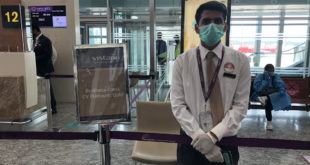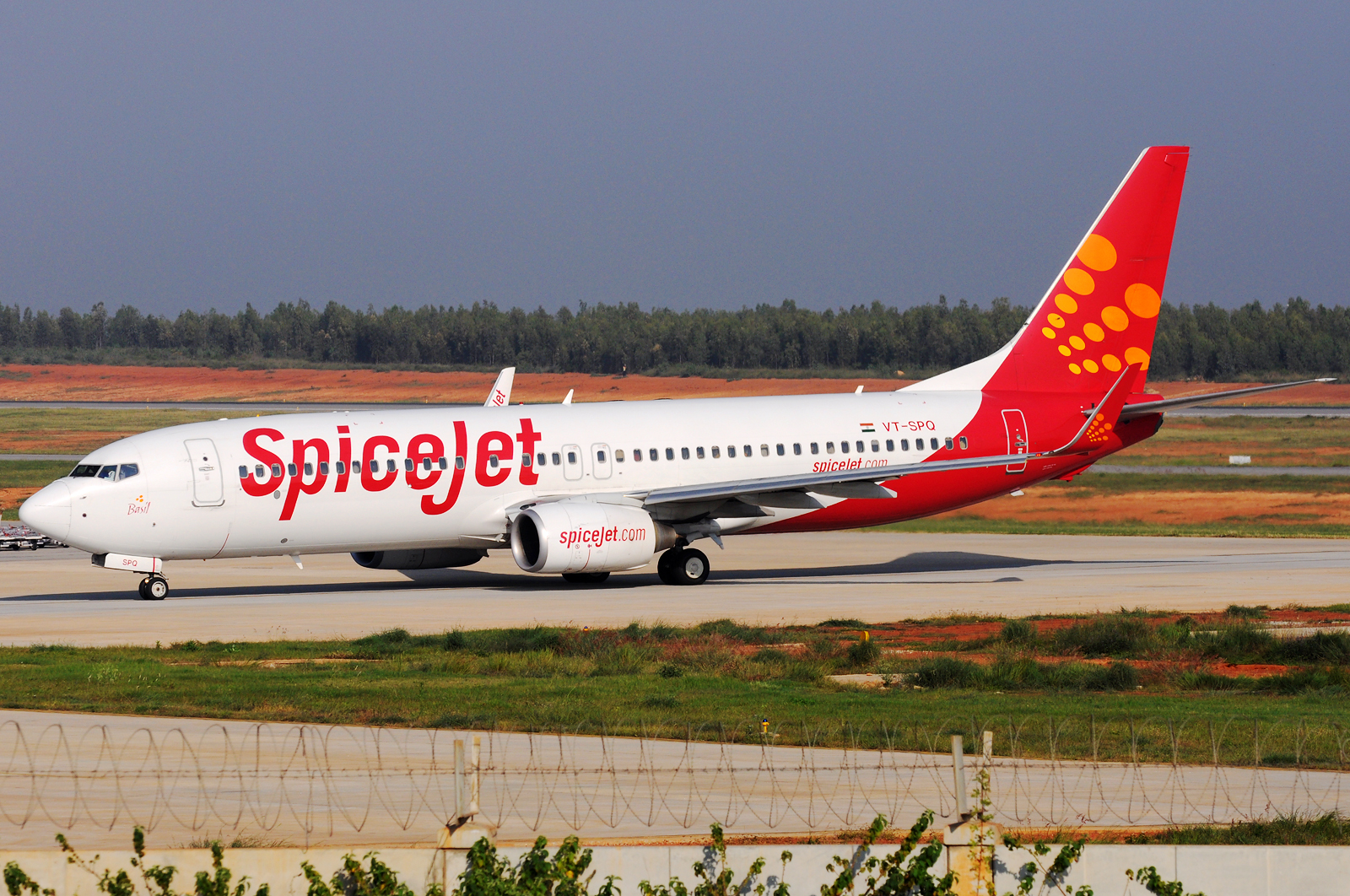Just as the cabinet decision for Air India was approved, the unsolicited bid by Indigo caught the entire airline industry by surprise. The surprise factor is perhaps best highlighted by the stock price which took a beating and fell on average by 8% in the two days following the announcement. However, the bid represents a very smart and planned move by Indigo. Bangalore Aviation presents an analysis in 7 key points why the bid makes sense:
Traffic and marketshare
A comparison of traffic and marketshare indicates that while Indigo leads in domestic marketshare, Air India captures a sizeable portion of the international passengers (flown by Indian carriers). Our numbers include Air India Express which constitutes approx.. 3 million passengers on its own. We believe it is important to include Air India Express as an overall portion of Air India numbers as any stake sale will likely give disproportionate value to Air India Express given its profitable operations, separate culture and brand value.
| 2016 (DGCA passenger data) | Air India (including AI Express) | Indigo |
| Domestic passengers | 13737814 | 39263954 |
| International passengers | 8901292 | 1797360 |
| Marketshare domestic (pax) | 13.8% | 39.5% |
| Marketshare international (pax) | 44.2% | 8.9% |
The passenger numbers above clearly highlight how an acquisition of Air India can rapidly accelerate Indigo’s international growth plans. Furthermore, Indigo already has a strong domestic network that can feed the international flights (critical to profitability of such operations).
Slots
Indigo’s growth plans are now being tempered due to the severe shortage of slots. This challenge is likely to be exacerbated given the Regional Connectivity Scheme where airports have been mandated to provide slots to slower moving regional jets (with overall impact to runway capacity). The table below shows most recent data on slot positions (in %) for Indigo and Air India at Delhi, Mumbai and Bengaluru
| Airport | Indigo | Air India |
| Delhi | 30% | 22% |
| Mumbai | 26% | 18% |
| Bengaluru | 40% | 8% |
As the fight for slots increases especially in metro cities (Delhi, Mumbai, Bengaluru), any successful bidder will be assured of new slots at these airports. The slots itself are very valuable given the state of Airport infrastructure development in the country and will create a natural entry barrier to competition (look out for a forthcoming analysis on airline strategy by Bangalore Aviation)
Parking bays
As is the case with slots, parking bays across metros are constrained. Parking is critical to first flight departures and “bases.” Currently, Air India, Indigo, Vistara and SpiceJet call Delhi base while GoAir and JetAirways have base locations in Mumbai (along with sizeable presence in Delhi). All of these carriers are growing and as such parking poses a huge challenge. The table below shows parking allocation as a % of total parking at key metro airports:
| Airport | Indigo | Air India |
| Delhi | 30% | 18% |
| Mumbai | 14% | 24% |
| Bengaluru | 51% | 7% |
| Chennai | 43% | 11% |
| Kolkata | 47% | 17% |
Mumbai airport has indicated that it has no more parking to offer airlines (all 43 out of available 43 taken), while Delhi is facing growth challenges as it attempts to grapple with the capacity constraint at T1. In Delhi the problem is fairly unique in that there is adequate parking available but most domestic carriers only want to be at Terminal 1 given the more efficient and lower cost operations out of the terminal. Parking bays at T1 are limited and will face additional limitations as airside improvement work is undertaken. Bengaluru also has a challenge with parking.
A note for parking is that it has to be seen in conjunction with slots – and a new issue is emerging where airlines may have the slot but not the parking (and vice-versa)
Hangars
In addition to slots, airline operators are now facing challenges with Hangar space. Hangar space is critical for maintenance and Air India possesses some of the finest facilities in the country at metro locations. With a fleet size of 133 and a target to end the year at 170, Indigo will require hangar space for maintenance work. Given the NEO challenges especially the engine changes(see BAs report on PW issues on NEO) hangar space is even more critical
Traffic rights
In the domestic market, Indigo now has a sizeable position. However, the market is also intensely competitive and the term “bloodbath” is often used by industry insiders as a reference to the falling fares and razor thin margins. The international market as such offers natural barriers from competition.
For international, traffic rights are critical assets and they pose an interesting dilemma for Indigo. Several rights notably to the Gulf are already saturated. While Indigo can request the ministry to increase its allocation, this triggers an increase for the foreign carriers as well (consequently capacity and yield pressures).
An Air India acquisition will bring with it traffic rights which Indigo can utilize quite efficiently while maintaining capacity discipline in the market. Most recent reports indicate that their Gulf routes (especially the recent Doha flights) have been extremely fruitful with flights operating near full passenger loads with high yields (also a reflection of the growth of LCCs in response to economic pressures the Middle East)
Indigo’s CEO in a communication to employees has indicated that the bid is largely to cater to international expansion possibilities.
Pilot pool and training
The final piece of the puzzle lies in the pilot pool and training setup. Pilot staffing that is Captains with command hours – is increasingly becoming a challenge for operators. This is reflected in the rising pay rates across carriers and new contract types being introduced. Add to this the robust pilot hiring market overseas and it is clear why a pool of well-trained pilots can be an asset to any airline currently.
Air India also has its own simulators and training setup which helps further this requirement.
Vertical integration
Indigo’s reticent founder has often indicated that the goal was not only to create an airline but a viable transportation system. With Indigo’s parent company Interglobe already in many aviation related businesses (technology, training, ground handling, airline, hotels), the Air India acquisition will further cement the way for creating an aviation behemoth that integrates all aspects of the aviation operations and create a powerhouse in Indian aviation.
With this in place further expansion (possibly a Middle East base) will also be a possibility.
In summary
In summary, the Indigo bid for Air India is very valid and carries with it a deliberate and well crafted plan. Needless to say, legacy issues – especially the debt and union issues will have to be worked out prior to any deal going forward. Competitors especially Vistara are also not going to let any bid go through as easily and a bidding war would be the ideal outcome for the government.
Overall, this saga is far from over and the analyst call on Thursday by Indigo will reveal further details.
Stay tuned.
 Bangalore Aviation News, Reviews, Analysis and opinions of Indian Aviation
Bangalore Aviation News, Reviews, Analysis and opinions of Indian Aviation




One comment
Pingback: To attract buyers Government allows 49% foreign investment in Air India - Bangalore Aviation